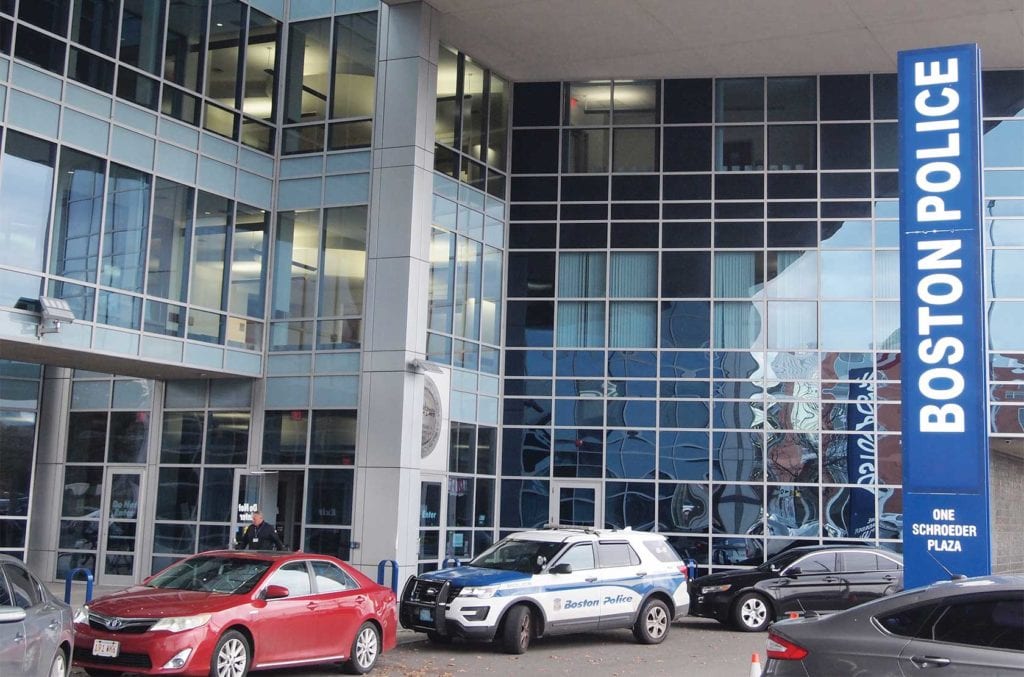
With the revelation that Boston police buried allegations for more than 20 years that a former officer and police union head sexually assaulted more than one minor child, the city’s police department is facing unprecedented pressure for change.
Despite the allegations that an internal investigation deemed credible, former Boston Police Patrolmen’s Association President Patrick Rose was allowed to work on cases involving minors — and now faces more allegations of assaults on minors.
The new scandal comes after more than a year of revelations of Boston police misconduct, amid a nationwide push for police reforms stemming from the Minneapolis police killing of George Floyd, and as City Council members and police reform advocates are pushing for greater transparency and accountability from the department.
Acting Mayor Kim Janey took a step in the direction of reform Monday, announcing she has ordered the release of redacted records of the department’s investigation into Rose’s alleged assaults — a move that parts ways with the department’s longstanding practice of suppressing public records.
Tuesday, Janey announced the appointment of attorney Stephanie Everett as head of the newly-formed Office of Police Accountability and Transparency (OPAT), an office former Mayor Martin Walsh created amid heightened pressure for reforms last year.
Jamarhl Crawford, who sat on the police reform panel that recommended the creation of OPAT, said he would like to see a zero-tolerance policy for serious police misconduct.
“Officers can’t violate the public trust,” he said. “If you have credible allegations of sexual misconduct and the department covers it up, what won’t they cover up?” he said. “Child molestation? Even criminal society wouldn’t tolerate that.”
In addition to the Rose case, the department has faced allegations of police misconduct, including police officers using what appears to be excessive force in the hours after a May 2020 anti-police-violence demonstration. In body camera video footage released last year, one officer, later identified as Clifton McHale, laughs while he tells another officer he hit demonstrators with his cruiser.
A Boston Globe report disclosed that McHale was charged in 2005 of sexually assaulting a woman, but then-Suffolk County District Attorney Dan Conley declined to charge him, citing insufficient evidence.
The department’s response to the video footage, which showed officers using their clubs to knock demonstrators to the ground, was the announcement that an officer had been suspended with pay pending an investigation. Neither the officer’s identity nor the results of the investigation were made public.
Criminal defense attorney Carlton Williams, who forced the police to release the videos of the May demonstration, said the Rose incident underscores the problem with the department’s lack of transparency.
“It’s not just about transparency, it’s actual cover-ups,” he said. “It’s clearly what happened with the body camera footage. They just said, ‘Somebody did something and we’re investigating.’”
Williams said the department, which currently has no commissioner, would benefit from new leadership.
“Janey needs to appoint someone who is willing to clean up the department,” he said. “The police department has never had that. She could pick someone from outside BPD or from outside the traditional hierarchies within BPD.”
Janey will have the opportunity to make significant reforms. As a city councilor, Janey called for a 10% cut to the department’s budget, with the $40 million in savings going to anti-violence and social service agencies. Some on the council have also called for transparency in the collective bargaining agreements with police unions, where the city negotiates key details on how police are disciplined for misconduct.
In the middle of a mayoral campaign where Janey is widely seen as a frontrunner, the three other councilors also running for the mayor’s office will likely keep the pressure on for substantive changes.
NAACP Boston Branch President Tanisha Sullivan, who sat on former Mayor Walsh’s police reform panel, said the most important changes Janey can make in the immediate future is the implementation of the panel’s reforms.
“We don’t need anything other than the full implementation of the recommendations,” she said.







